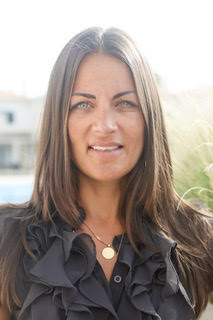Who are you?
I am Helena Radeson Silverup
Where, when and why did you move abroad?
Me and my family (husband and then four year old daughter) moved from Stockholm, Sweden to Cascais, Portugal in January 2016. We are now here as ex-pats.We moved because we wanted to give our daughter this incredible language, multicultural and eye opening start in life, and secondly, as a consequence we also gave ourselves the chance to break out of the normal and do the new, including thinking and trying the new, both professionally and personally.
What challenges did you face during the move?
Portugal is a very easy country to move to, the people are relaxed, friendly and welcoming. English knowledge is quite spread as compared to other neighbouring countries, it is for sure not the general Portuguese’s preferred language, and you do end up in places where nobody speaks English, but still, it’s definitely survivable. However, I would recommend learning Portuguese, it’s a difficult language compared to all others I know, but it makes a difference in being able to participate in society.
The biggest hurdle is the paper work because of the relaxed or slow attitude also of official organisation and bureaucracy, so it can be difficult as a foreigner to get things done. Making use of an immigration agency as an ex-pat makes this hurdle very much easier to overcome since it means you are dealing with people instead, and, they are very friendly.
How did you find somewhere to live?
Via an agency.
Are there many other expats in your area?
Yes, the Cascais area is the place to be for ex-pats, because of its beauty, its tranquility, its closeness to the ocean and its closeness to the international schools.
What is your relationship like with the locals?
The locals are very friendly and always have a warm hallo for everybody, they are generally quite curious about people. As with locals anywhere though, most already have their set of friends who they spend time with, however, you will be welcome to take part in any activities and they always have the time for a chat if you engage in it.
What do you like about life where you are?
There are two big differences between Sweden and Portugal:
1) The weather, no doubt. The climate in Portugal is very comfortable, it means you can dress relaxed and engage in outdoor activities pretty much around the year. But it is the amount of light that makes the biggest impact on your well-being, the light and the sun, they are common most parts of the year and very life and energy boosting.
2) The general attitude of the Portuguese is the second biggest difference. People are generally very relaxed and calm here, which means everything is quite relaxed and calm, making the pace of life and thus quality of life quite unstressed and enjoyable. These are easily two things that have definite positive implications for quality of life here in Portugal.
What do you dislike about your expat life?
The building and housing standard. Sweden knows it is a cold country, so houses are thoroughly and well built, with the prospect to offer an enjoyable indoor climate all around the year. In Portugal, houses are built to hold the heat out in the summer, meaning that they are really cold, very damp and without fresh air in winter. Luckily winter isn’t too long.
What is the biggest cultural difference you have experienced between your new country and life back home?
The very calm, relaxed, no hurry attitude of the people along with the relatively introvert cultural standing.
What do you think of the food and drink in your new country? What are your particular likes or dislikes?
There is plenty of it and the Portuguese are very proud particularly of their food. Restaurants in general have good food, it is not common to come across something bad. Given the proximity of the ocean the fresh fish is excellent here. It is prepared quite naturally, allowing the taste to come forward. The traditional foods, like for example bacalhau (dried cod fish) prepared in a variety of ways and the typically fried balls with different stuffings are interesting but maybe not something to bring home. An interesting aspect here in Portugal (that goes not only for food and drink) is how little we knew of the local produce before coming here. It is not as well known as for example the French, Spanish or the Italian produce, meaning that you have the opportunity to try a lot!
What advice would you give to anyone following in your footsteps?
Remember to enjoy and remember you are a temporary visitor, so be humble towards the natives and appreciate your time here!
What are your plans for the future?
To continue enjoying life while we are here!
You can keep up to date with Helena's adventures on her blog, byRaDe.
Would you like to share your experiences of expat life with others? Fill in the questions here to be featured!

